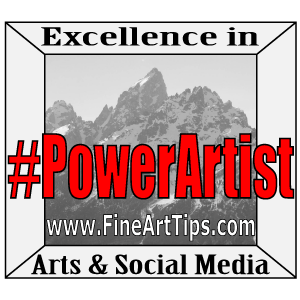West Bank Art Guild Workshop
This post is for the artists registered in my watercolor workshop hosted by the West Bank Art Guild, January 29-31. Students may use the comment section at the bottom of this post to ask questions, or they may email me directly. All future correspondence regarding this workshop will take place here, so please bookmark this page.
Materials List for Watercolor Painting
Workshop
Participants in this workshop will learn the techniques
to paint realistic water, skies, landscapes, and more. They will learn how to
create convincing reflections and shadows in water, and how to paint various
types of waves and water movement. Participants will learn multiple watercolor
techniques including glazing, washes, dry brush, masking, lifting, etc., also
composition design, values, color mixing, and use of color temperatures.
Students will complete one "primary" painting during the workshop, the
complexity of which is determined by the length of the workshop. Participants
will receive reference photos prior to the workshop and are responsible for
drawing the subject onto their own watercolor paper before the workshop begins.
In addition, students will also complete at least one "study" painting during
each day of the workshop. The studies are used to practice the many techniques
that we cover during the lessons.
Materials list:
- Watercolor paper (4 or more), CP, at least 140# or
heavier. Approximately half-sheet size. Blocks can be used.
- Several
smaller scraps or a small pad of watercolor paper, for practicing brush
strokes
- Removable masking fluid
- HB
pencil
- White
plastic/vinyl eraser
- water
containers
- Paper
towels
- 1" flat
watercolor brush
- Assorted large round brushes, no smaller than #8 (at
least one should be at least a #16 or larger)
- Paints:
Indigo, Cobalt Blue, Ultramarine Blue (green shade/hue), Manganese blue (you can
substitute similar mid-value warm blue if you don’t have this color), Payne's
Grey, Sepia, Olive Green, Green Gold, Violet, Yellow Ochre, a warm and a cool
red, and any other colors you like to use. Click here to
see the colors I use most often! We
all don’t need to use the exact same brands and colors of paint. I hate it when
students go out and spend a lot of money on colors that they might never use
again. Artists can paint quite successfully in my workshops and classes using
only a split primary palette of colors, or any standard set of watercolor
paints. However, I do prefer that students invest in quality artist grade
materials, as student grade materials do not perform as well and therefor are
more difficult to use.
- I
suggest that students bring whatever watercolor paints and brushes that they
already have. There are tons of colors that I like to use, but I don’t want
people to go out and buy new colors that they don’t really need. Same thing with
brushes – I like to use an assortment of Kolinsky sables, squirrels, and
synthetics. Natural hair brushes are very expensive so I don’t require them in
my classes, but there are advantages to using them for some techniques so if you
have them – bring them!
This is the photo we
will paint in the workshop. It is also attached to this email, so you can email
it to participants. NOTE! There is a wreck of a sunken boat near the shoreline
in the background of the photo -- we will NOT include that in our painting.



0 Comments:
Post a Comment
Subscribe to Post Comments [Atom]
<< Home